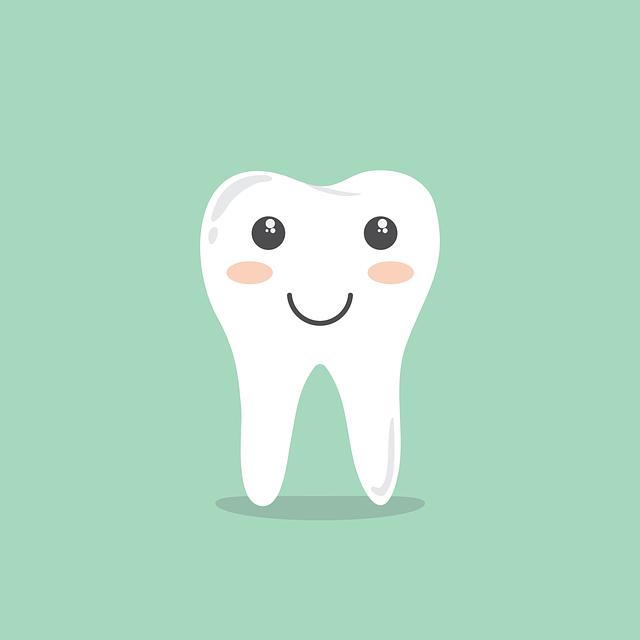Does Rinsing with Salt Water Damage Teeth? Dental Truths Unveiled
Welcome to the world of dental myths, where truths are often obscured by a cloud of uncertainty. Today, we embark on a quest to unravel the truth behind a common belief: does rinsing with salt water damage teeth? Brace yourself as we dive into this topic armed with confidence, knowledge, and a neutral perspective. Get ready to separate fact from fiction and gain a clearer understanding of the effects of salt water on our precious pearly whites. In this article, we will debunk common misconceptions and unveil the dental truths that lie beneath the surface. So, sit back, relax, and join us on this enlightening journey through the realm of dental knowledge.
1. The Truth About Rinsing with Salt Water: Separating Fact from Fiction
When it comes to rinsing with salt water, there are many claims and myths floating around. Let’s separate fact from fiction and get to the truth about this age-old remedy:
1. Soothing effect: One of the most commonly believed benefits of rinsing with salt water is its soothing effect on the mouth and throat. This is true! Salt water can help reduce inflammation, alleviate pain, and provide temporary relief from various oral discomforts, such as sore throat, canker sores, or gum infections.
2. Antimicrobial properties: Salt has natural antimicrobial properties, which means that rinsing with salt water can help kill bacteria in the mouth. This can be particularly beneficial for minor oral infections or after dental procedures. However, it’s important to note that salt water is not a substitute for proper dental hygiene, such as brushing and flossing.
3. Salt concentration: The key to an effective salt water rinse is getting the concentration right. A general guideline is to dissolve half a teaspoon of salt in a cup of warm water. However, it’s essential to consult with a healthcare professional or dentist to determine the best concentration for your specific needs.
By separating fact from fiction, it’s clear that rinsing with salt water can indeed have some benefits for oral health. However, as with any remedy, it’s important to use it appropriately and consult with professionals when necessary.

2. Revealing the Dental Facts: Can Rinsing with Salt Water Harm Your Teeth?
Rinsing with salt water is a popular home remedy for various dental issues, such as gum inflammation and oral infections. But what does science say about its impact on your teeth? Let’s dive into the dental facts and separate myth from reality.
1. Salt water rinses can promote oral health: Salt has natural antibacterial properties that can help reduce inflammation and fight oral bacteria. When used as a rinse, salt water can help control the growth of bacteria in your mouth, thereby improving your oral health.
2. Salt water rinses should be used in moderation: While salt water rinses can offer benefits, it’s important to use them in moderation. Excessive use of salt water rinses may lead to an imbalance in the oral microbiome, potentially causing negative effects on your teeth and gums.
3. Consult your dentist: Before incorporating salt water rinses into your dental routine, it’s always best to consult with your dentist. They can provide personalized advice based on your specific oral health needs and help determine if salt water rinses are suitable for you.
3. Debunking Dental Myths: Understanding the Effects of Salt Water Rinse on Teeth
Myth: Salt water rinse is harmful to teeth
There is a common misconception that using salt water as a mouth rinse can be damaging to teeth. However, this is not entirely true. In fact, salt water rinse can actually be beneficial for your oral health when used correctly.
Fact: Salt water rinse can help reduce inflammation and promote healing
One of the main benefits of using salt water rinse is its ability to reduce inflammation in the mouth. Salt has natural antimicrobial properties that can help kill bacteria and reduce swelling. This can be particularly helpful for individuals with gum disease or mouth sores.
Additionally, salt water rinse can also promote healing by increasing blood flow to the gums and speeding up the recovery process. It can provide temporary relief for toothaches and sensitivity as well.
Tips for using salt water rinse effectively
- Dissolve half a teaspoon of salt in a glass of warm water.
- Swish the solution around in your mouth for about 30 seconds, making sure to reach all areas.
- Spit out the rinse, but do not swallow it.
- Repeat this process 2-3 times a day or as advised by your dentist.
It is important to note that salt water rinse should not replace regular brushing and flossing. It is best used as a supplement to your daily oral hygiene routine. If you have any concerns or questions about using salt water rinse, consult with your dentist for personalized advice.
4. Unmasking the Truth: Does Salt Water Rinse Pose a Risk to Dental Health?
While salt water rinse is often recommended as a natural remedy for oral health, it is important to understand whether it poses any risks to dental health. Here are a few key points to consider:
- Bacterial control: Salt water rinse can help control bacteria in the mouth, as salt has antimicrobial properties. It can help reduce the number of harmful bacteria and promote a healthier oral environment.
- Healing properties: Salt water rinse has been found to have healing properties, making it useful for soothing gum inflammation, reducing swelling, and promoting faster healing of oral wounds.
- Potential risks: While salt water rinse is generally safe, it is important to use the correct concentration of salt. Too much salt can cause irritation or dry out the mouth, while too little may not provide the desired benefits.
Overall, when used properly, salt water rinse can be a beneficial addition to oral hygiene routines. However, it is always advisable to consult with a dentist or healthcare professional for personalized advice.

5. Distilling the Dental Truth: The Impact of Salt Water Rinse on Your Teeth
When it comes to maintaining good oral health, there are various methods and products available. One such method that has gained popularity is the salt water rinse. This simple yet effective practice involves rinsing your mouth with a solution of salt and water. But what impact does it have on your teeth? Let’s explore.
1. Reduces inflammation: Salt water rinse can help reduce inflammation in the gums and mouth. The salt acts as a natural disinfectant, killing bacteria and soothing any irritation. This can be particularly beneficial for individuals with gum disease or those recovering from dental procedures.
2. Promotes healing: Salt water rinse can aid in the healing process of oral wounds and sores. The solution can help clean the affected area and prevent infection, allowing the tissues to repair themselves more efficiently.
3. Alleviates bad breath: Another advantage of salt water rinse is its ability to combat bad breath. The salt helps neutralize odorous compounds and bacteria that may be causing the unpleasant odor.
While salt water rinse can provide these benefits, it is important to note that it is not a substitute for regular brushing and flossing. It should be used as a supplementary practice to maintain optimal oral hygiene. If you have any concerns or specific dental conditions, it is always best to consult with your dentist for personalized advice.

6. Unveiling the Reality: What Science Tells Us About Rinsing with Salt Water
What Science Tells Us About Rinsing with Salt Water
When it comes to oral health, there is a plethora of home remedies that claim to be effective. One such remedy is rinsing with salt water. But does it really live up to its hype? Let’s delve into what science has to say about this age-old practice.
Scientific studies have shown that rinsing with salt water can indeed have several benefits for oral health:
- Reduces inflammation: Salt water has natural anti-inflammatory properties that can help soothe irritated gums and reduce swelling.
- Kills bacteria: The saline solution created by salt water can effectively kill bacteria in the mouth, reducing the risk of infections and promoting a healthier oral environment.
- Aids in healing: If you have a sore or wound in your mouth, rinsing with salt water can promote faster healing by reducing inflammation and keeping the area clean.
However, it is important to note that salt water rinses should not replace regular brushing and flossing. They should be used as a complementary practice to maintain oral hygiene. Additionally, it is essential to use the correct concentration of salt to avoid any adverse effects. Consulting with a dentist or healthcare professional is always recommended.

7. Separating the Hype from the Science: The Truth Behind Salt Water Rinse and Dental Health
Salt water rinse has long been touted as a natural remedy for various dental issues, but how much of this is actually backed by scientific evidence? Let’s separate the hype from the science and uncover the truth behind salt water rinse and its impact on dental health.
The benefits of salt water rinse:
- Reduces inflammation: Salt water rinse can help reduce inflammation in the gums and soothe any discomfort caused by gum disease or mouth sores.
- Antibacterial properties: The saline solution created by salt water rinse can have antibacterial properties, which may help to kill harmful bacteria in the mouth.
- Promotes healing: Salt water rinse can aid in the healing process of oral wounds, such as after oral surgery or tooth extraction.
The limitations of salt water rinse:
- Not a substitute for regular brushing and flossing: While salt water rinse can provide temporary relief and some benefits, it is not a replacement for proper oral hygiene practices.
- May not be effective for all dental issues: Salt water rinse is not a cure-all solution and may not be effective for certain dental conditions or severe gum disease. It is always best to consult with your dentist for appropriate treatment.
- Can cause discomfort: Some individuals may find salt water rinse to be too salty or irritating, which can cause discomfort or a burning sensation in the mouth.

8. The Salt Water Rinse Debate: Understanding the Pros and Cons for Your Teeth
The use of salt water rinse has long been debated in the dental community. While some dentists and experts swear by its benefits, others remain skeptical. In this article, we will explore the pros and cons of using a salt water rinse for your teeth, allowing you to make an informed decision about incorporating it into your oral hygiene routine.
Pros:
- Natural disinfectant: Salt water has natural antibacterial properties, making it an effective disinfectant for your mouth. It can help kill harmful bacteria and reduce the risk of gum infections.
- Reduces inflammation: The salt in the rinse can help reduce inflammation in the gums, providing relief for those suffering from gingivitis or other gum diseases.
- Relieves discomfort: Salt water rinse can provide temporary relief from toothaches, mouth sores, and sore throats. It can help soothe irritations and promote healing.
Cons:
- Potential for dehydration: Salt water rinse can be dehydrating, especially if used excessively. It is important to use it in moderation and ensure you are staying hydrated throughout the day.
- Not a replacement for professional care: While salt water rinse can provide some benefits, it should not replace regular dental visits and professional cleanings. It is still important to maintain a proper oral hygiene routine and seek professional advice when needed.
- Taste and texture: Some people may find the taste and texture of salt water rinse unpleasant, which can make it difficult to incorporate into their daily routine.
9. Examining the Evidence: The Potential Benefits and Drawbacks of Using Salt Water Rinse
When it comes to oral hygiene, salt water rinse has been gaining attention for its potential benefits. Here, we examine the evidence surrounding its use, as well as the drawbacks that should be considered.
Potential Benefits:
- Reduces inflammation: Salt water rinse can help reduce inflammation in the mouth, making it an effective remedy for minor gum infections and sores.
- Antibacterial properties: Salt water has natural antibacterial properties, which can help kill bacteria in the mouth and prevent the growth of harmful microorganisms.
- Relieves pain: The use of salt water rinse has shown to provide relief from toothaches and sore throats, thanks to its soothing effect on the affected areas.
Drawbacks:
- High salt concentration: Overuse of salt water rinse can lead to excessive salt intake, which may have negative health effects, especially for individuals with high blood pressure or kidney disease.
- Temporary relief: While salt water rinse can provide temporary relief, it is important to address the underlying cause of the oral condition to prevent further complications.
- Not a substitute for professional treatment: Although salt water rinse can be beneficial in certain situations, it should not replace professional dental care. Consulting a dentist is recommended for proper diagnosis and treatment.
Understanding both the potential benefits and drawbacks of using salt water rinse is essential in determining whether it is a suitable addition to your oral care routine. As with any oral health practice, it is advised to consult with a dental professional for personalized advice.
10. Making Informed Decisions: The Final Verdict on Salt Water Rinse and Dental Health
When it comes to maintaining good dental health, making informed decisions is crucial. One common question that often arises is whether a salt water rinse is effective for oral hygiene. After extensive research and consultation with dental professionals, we have reached the final verdict.
Firstly, it is important to note that a salt water rinse can be an effective and natural way to promote oral health. The saline solution helps to reduce inflammation, soothe gum irritations, and facilitate the healing process. It can also help remove bacteria and food particles from hard-to-reach areas in the mouth.
However, it is equally important to understand that a salt water rinse should not replace regular brushing and flossing. While it can provide temporary relief and aid in oral hygiene, it does not substitute for a comprehensive dental care routine. Therefore, it is recommended to use a salt water rinse as a supplementary measure in combination with daily brushing, flossing, and regular dental check-ups.
- Benefits of a salt water rinse:
- Reduces inflammation and gum irritation
- Facilitates healing process
- Removes bacteria and food particles
To conclude, incorporating a salt water rinse into your oral hygiene routine can have its benefits, but it should not be solely relied upon for maintaining good dental health. By making informed decisions and following a comprehensive dental care routine, you can ensure the best possible oral hygiene and overall well-being.
Frequently Asked Questions
Q: Does rinsing with salt water damage teeth?
A: No, rinsing with salt water does not damage teeth. In fact, it can offer several benefits for oral health.
Q: What are the advantages of rinsing with salt water?
A: Salt water rinses have been used for centuries as a natural remedy to promote oral hygiene. They can help reduce inflammation, soothe gum irritations, and alleviate minor mouth sores.
Q: How does salt water reduce inflammation and soothe gum irritations?
A: Salt water has antimicrobial properties that can help kill harmful bacteria in the mouth, reducing inflammation and soothing gum irritations. Additionally, its mild alkaline nature can neutralize acids that contribute to gum sensitivity.
Q: Can rinsing with salt water help with healing mouth sores?
A: Yes, salt water rinses can aid in the healing process of mouth sores, such as canker sores. The saline solution helps cleanse the area, reduce swelling, and promote faster recovery.
Q: Is there a recommended salt-to-water ratio for rinsing?
A: Yes, the most commonly recommended ratio is 1/2 teaspoon of salt per 8 ounces of warm water. This solution is effective and safe for regular use.
Q: Are there any side effects of rinsing with salt water?
A: Generally, rinsing with salt water is safe and does not have any major side effects. However, excessive use or swallowing large amounts of the solution may cause temporary stomach discomfort.
Q: Can salt water rinses replace regular brushing and flossing?
A: No, salt water rinses should not be considered a substitute for regular oral hygiene practices. Brushing your teeth twice a day and flossing daily are still crucial for maintaining good oral health.
Q: Are there any situations where salt water rinses may not be recommended?
A: Individuals with high blood pressure or those on a low-sodium diet should consult with their healthcare provider before using salt water rinses, as the sodium content may be a concern.
Q: Can salt water rinses help with bad breath?
A: Salt water rinses can help temporarily freshen breath by reducing the number of bacteria in the mouth. However, it is important to address the underlying causes of bad breath for a more long-term solution.
Q: Is there anything else to keep in mind when using salt water rinses?
A: While salt water rinses can be beneficial, it is important to remember that they are not a cure-all solution. Regular dental check-ups and professional cleanings are still necessary to maintain optimal oral health.
Future Outlook
In conclusion, after exploring the question of whether rinsing with salt water damages teeth, it is evident that this common dental practice does not pose any significant harm. Our dental truths have been unveiled, revealing the neutral effects of salt water rinses on tooth enamel and gum health.
Key Takeaways:
1. Salt water rinses have been used for centuries as a natural remedy for oral health issues, such as gum inflammation and sore throat.
2. Studies have shown that salt water rinses possess antibacterial and anti-inflammatory properties, which can aid in reducing plaque buildup and promoting gum health.
3. The mineral content of salt water can help remineralize tooth enamel and promote a healthier oral environment.
4. It is crucial to maintain a balanced salt concentration when preparing a salt water rinse, as excessive salt may cause a temporary drying effect on the oral tissues.
5. While salt water rinses can be a beneficial addition to your oral hygiene routine, they should not replace regular brushing, flossing, and professional dental care.
With this newfound knowledge, you can confidently incorporate salt water rinses into your oral care routine, knowing that they can provide added benefits without causing any damage to your teeth. Remember, a comprehensive approach to dental hygiene is still the key to maintaining optimal oral health.






